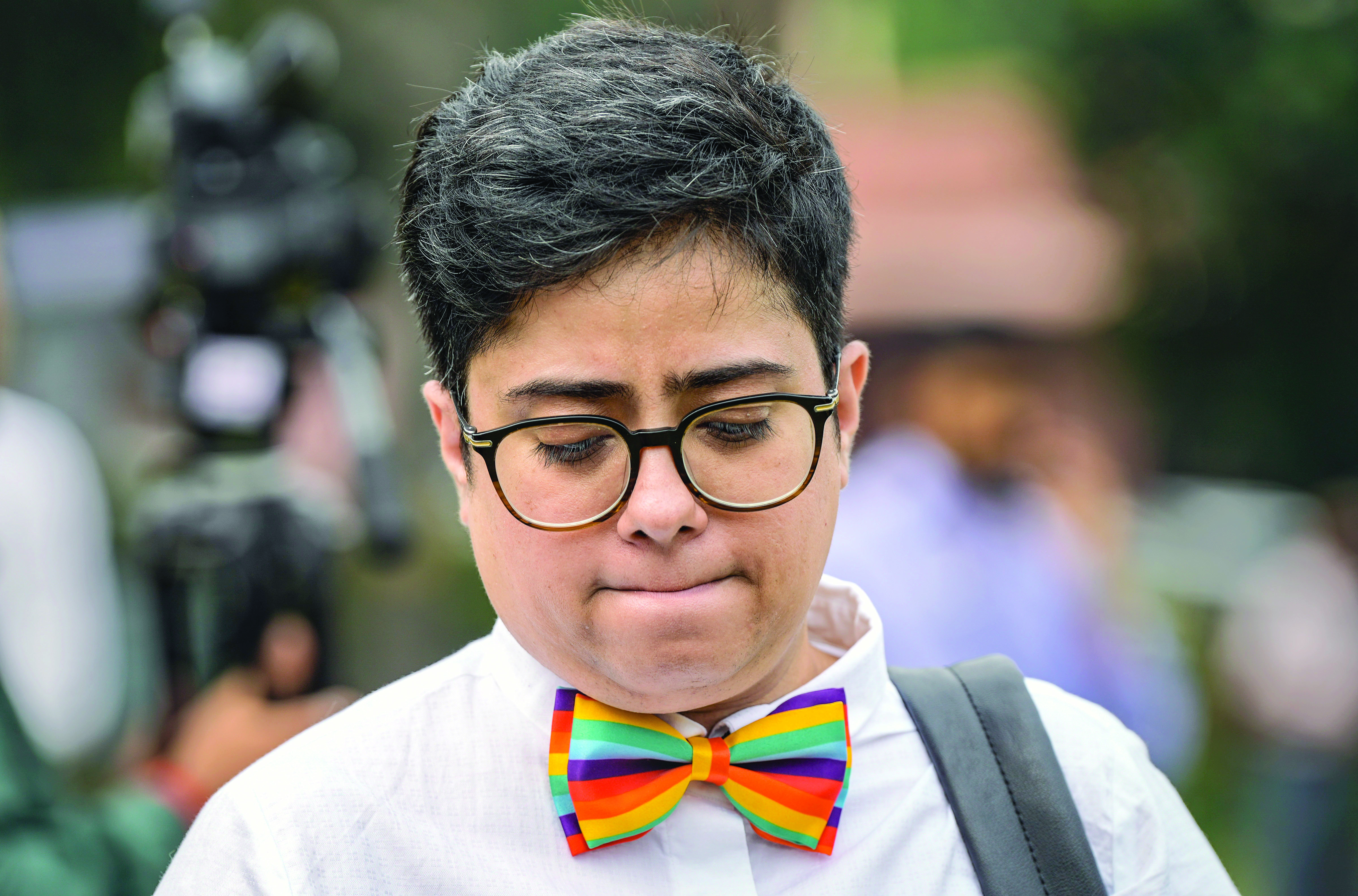‘SC same-sex marriage verdict made critical analyses of dissenting views’

The five-judge bench of the Supreme court, which unanimously refused to legalise same-sex marriage in four concurrent verdicts, differed on issues like applicability of adoption rules for queer couples and unusually made critical analyses of rival opinions and findings.
The Constitution bench headed by Chief Justice D Y Chandrachud on Tuesday refused to accord the legal recognition to same-sex marriage under the Special Marriage Act, saying there was “no unqualified right” to marriage with the exception of those that are recognised by law.
The bench comprising the CJI, and Justice Sanjay Kishan Kaul, S Ravindra Bhat, Hima Kohli and P S Narasimha wrote four separate judgments.
While the CJI and Justice Kaul were broadly on the same page on all legal issues raised in the petitions, three other judges Justices Bhat, Kohli and Narasimha differed with the views expressed by the two.
In his 247-page judgement, the CJI separately penned a response to the opinion voiced by Justice Bhat who, in turn, also wrote a “postscript” as rejoinder to the critical analysis of his views by Justice Chandrachud.
The CJI referred to Justice Bhat’s opinion that the court recognises “unenumerated” rights in response to State action and mostly they pertain to Article 21 (protection of life and liberty) under the Constitution.
“In the opinion authored by him, my learned brother, Justice Ravindra Bhat states that unenumerated rights are recognised by Courts in response to State action that threaten the freedom or right directly or indirectly.’
“With due respect, such a narrow understanding of fundamental rights turns back the clock on the rich jurisprudence that the Indian courts have developed on Part III (fundamental rights) of the Constitution,” the CJI said.
The CJI referred to some judgements and said the top court has held in numerous cases that the rights of persons are infringed not merely by overt actions but also by inaction on the part of the State.
“In NALSA ..., this court held that the State by rendering the transgender community invisible and failing to recognize their gender identity deprived them of social and cultural rights. This Court recognised the duty of the State to enable the exercise of rights by the transgender community and issued a slew of directions to enforce this duty...,” the CJI said.
Writing an 89-page judgement for himself and Justice Kohli, Justice Bhat responded, postscript, that a close look at the cases cited by the CJI would reveal that they all pertained to facets of personal liberty or an aspect of the subject was related to legislation.
“The learned Chief Justice in his response seeks to highlight that the Court has in the past exercised its powers under Article 32 in respect of enforcement of various fundamental rights and cited certain precedents. A close look at each of them would reveal that in almost all cases, the Court enforced facets of personal liberty, or an aspect that was the subject of legislation,” Justice Bhat wrote.
Justice P S Narasimha concurred with Justice Bhat in his 13-page judgement.
Discussing the case laws, the CJI said, “The observation of Justice Bhat that an overt action of the State is necessary for the court to direct the State to create enabling conditions has no jurisprudential basis.”.
“I also disagree with the observations of Bhat J that in the absence of a legal regime, the power of this Court to issue directions to enable the facilitation of rights is limited,” Justice Chandrachud said.
Referring to the pleas seeking legal sanction for same-sex marriage, the CJI said they are demanding equal access to something which does exist that is the entitlements which flow from the right to form an abiding cohabitational union.
“In fact, my learned brother himself recognizes this when he holds that the actions of the state have the effect of discriminating against queer couples.”



